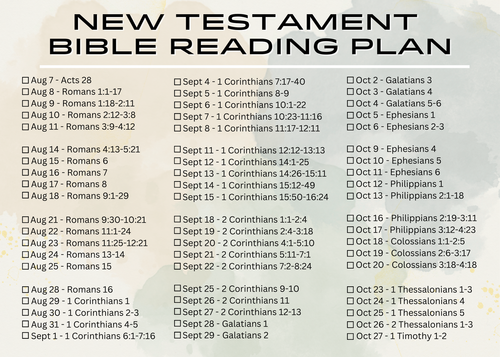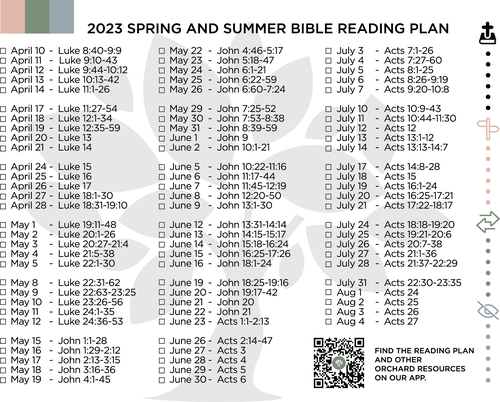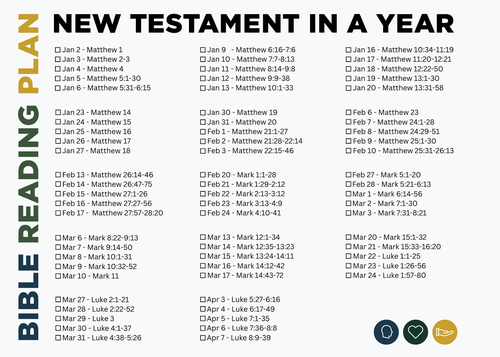No Partiality
Acts 10:9-43
The Vision
It is significant that Peter is staying with Simon, a Jew but also a tanner, making him frequently unclean under Jewish law because of his work with animal hides. Luke emphasizes Peter's prayer habits, mentioning how he goes up to the roof at midday, the sixth hour, to pray. It is worth noting that both visions in this chapter happen while people are already praying, regardless of one's beliefs about dreams and visions from God. At lunchtime, Peter gets hungry. Then, an extraordinary event occurs that changes the course of the kingdom. As explained by Luke, Peter enters a trance and sees a sheet descending from heaven containing various types of animals, including reptiles and birds. He hears a voice commanding him to "Get up, Peter, kill, and eat." However, Peter declines, stating that he has never consumed anything the Mosaic Law prohibits. This situation repeats twice more. The significance of maintaining fidelity to God's covenant, which has been understood for centuries, is at stake here.
Jesus taught Peter, received the Spirit, preached the gospel powerfully, and performed miraculous signs in Jesus' name. However, taking the next step in the kingdom challenges him profoundly. As a Jew, he strictly followed the dietary laws. He never considered that following Jesus would mean reevaluating everything he holds dear. He only ate food that adhered to the law, and now God is telling him to eat everything. For believers in Jesus to gather and bond, specific issues must be resolved first. Peter struggles with this new concept, which causes tension in later parts of the book of Acts and the New Testament letters. This results in arguments, lengthy discussions, appeals, a significant council, unrest, false allegations, and widespread misunderstanding of the events described in Acts 10.
Jesus taught Peter, received the Spirit, preached the gospel powerfully, and performed miraculous signs in Jesus' name. However, taking the next step in the kingdom challenges him profoundly. As a Jew, he strictly followed the dietary laws. He never considered that following Jesus would mean reevaluating everything he holds dear. He only ate food that adhered to the law, and now God is telling him to eat everything. For believers in Jesus to gather and bond, specific issues must be resolved first. Peter struggles with this new concept, which causes tension in later parts of the book of Acts and the New Testament letters. This results in arguments, lengthy discussions, appeals, a significant council, unrest, false allegations, and widespread misunderstanding of the events described in Acts 10.
Directed By A Holy Angel
The vision coincides with the arrival of the men sent by Cornelius (v. 17). Peter is still on the roof trying to figure out the meaning of the vision when the Spirit informs him that three men are searching for him. He is instructed to leave the roof and leave with them quickly. This is the second time in the chapter that Luke recounts Cornelius's vision through the men's description to Peter. When Cornelius sees Peter, his response shows he greatly respects the apostles. However, it's important to note that despite their high regard, the apostles are not to be worshipped. Peter tells Cornelius to stand up because he is just a man, like Cornelius himself (v.26). Therefore, it's clear that Cornelius is not worshipping Peter as if he were God; instead, his gesture is a sign of reverence. Peter then lifts Cornelius and talks to him on the same level as two men.
Unlawful
According to modern interpretations, Peter acknowledges that he is breaking the law by entering the house. However, in a vision, he heard the message, "What God has made clean, do not call common" (verse 15), and he understands this to mean that he should not consider any person to be common or unclean (verse 28). The focus here is on God and people, not food. The food laws were always about faithfulness to God, as they were a way of expressing holiness and complete devotion to God, including in matters of diet. God directed Cornelius to Peter through an angel, as stated in all versions of the message to the men sent to summon Peter. Cornelius's piety is emphasized, which showcases that God accepts a Gentile based not on their good deeds but rather on their faith. Even though Cornelius is not part of the Mosaic covenant, his prayers and acts of charity are valued by God. Thus, Cornelius's example demonstrates what kind of worship is acceptable to God.
Peter explained that God shows no favoritism and welcomes people of all ethnic and cultural backgrounds. When he said "every nation," he meant every group of people on earth. This does not mean that salvation is earned through works or a combination of works and grace, but rather emphasizes that the gospel is open to all people. Peter ended his sermon by declaring that forgiveness of sins is obtained through faith in Jesus, which applies to all people equally, regardless of their background. The reason Peter mentions it here is more important and significant because it relates to the Gentile context. God has condemned the world, but there is hope through Jesus, who offers repentance and forgiveness to everyone, starting with the Jews and extending to the Gentiles.
Peter explained that God shows no favoritism and welcomes people of all ethnic and cultural backgrounds. When he said "every nation," he meant every group of people on earth. This does not mean that salvation is earned through works or a combination of works and grace, but rather emphasizes that the gospel is open to all people. Peter ended his sermon by declaring that forgiveness of sins is obtained through faith in Jesus, which applies to all people equally, regardless of their background. The reason Peter mentions it here is more important and significant because it relates to the Gentile context. God has condemned the world, but there is hope through Jesus, who offers repentance and forgiveness to everyone, starting with the Jews and extending to the Gentiles.





Recent
Archive
2023
January
Happy New Year!He Will Save His People From Their SinsMy Beloved SonTemptation And MinistryThe SermonLeaving, Lying, Limits, Love, Largesse, and The Lord's PrayerTreasure, Anxiety, and JudgmentAstonishing AuthorityStorms, Demons, and HealingJesus Is CompassionateHis Eye Is On The SparrowSwords, Rewards, and MessengersThe Lord of the SabbathBlasphemy, Bad Trees, Signs, and FamilyStories, Sowers, and SoilsParables, Hidden Treasure, and RejectionFame, Food, Fear, Faith, and FringeReal Issues And The Power Of GodDying To Find LifeLike The SunChildren, Temptation, Sheep, And ForgivenessMarriage, Kids, And MoneyTo Serve And Give His Life
February
The ArrivalStories That StingQuestion TrapsHidden Motives And LamentThe End...?UnexpectedReady?Punishment, The Plot, And PerfumeTreachery, Passover, and The CupBetrayal, Injustice, And DenialThe Field Of Blood And The GovernorCrucifixion And DeathAll AuthorityMark—The Beginning Of The GospelHealing, Preaching, And The Forgiveness Of SinEating With Tax Collectors, Fasting, The Sabbath, And An Escape BoatThe Twelve, Blasphemy, Family, And A ParableParables And PowerA Different Kind Of StormPower Had Gone Out
March
Death, Hunger, And MiraclesCommandment Or TraditionDo You Not Yet Understand?The Christ And A Glimpse Of His GloryUnbelief, Confusion, And SinDivorce, Children, And PossessionsTo Give His Life As A RansomHosannaThe Rejected Stone, Taxes, And The Great CommandmentDestruction And The EndNo One Knows, An Anointing, And A Promise To BetrayPassover And GethsemaneThe Kiss, Arrest, And DenialPilate, Simon, And The CrucifixionDeath, Burial, Resurrection, And What\'s NextTheophilus And A Visit From GabrielMary And The MagnificatBenedictusThe Arrival And The ShepherdsSimeon, Anna, And The SpiritFruits Keeping With Repentance And BaptismThe Wilderness, Nazareth, And CapernaumSimon's Mother-In-Law, Fishing, A Leper, And Sins
April
Tax Collectors, Fasting, Sabbath Controversies, And The TwelveWhy Do You Call Me Lord, Lord?Jesus Marveled, A Raised Son, And QuestionsA Sinful Woman And A ParableObeying The Word, A Storm, And DemonsTwelve Years, Twelve Apostles, And SpeculationGreater, Costly, And GloryNot Getting It, The Cost, And AppointedWoes, Neighbors, And What Is NecessaryHelp Us Pray And A Divided Kingdom?Signs, Lights, And WoesHypocrisy, Fear, A Fool, And AnxietyParables, Division, And The TimesWarnings, A Daughter Of Abraham, And Jerusalem, JerusalemA Son Or An Ox, Parties, And DiscipleshipLost ThingsThe Dishonest Manager, The Law, And Anguish In This FlameMillstones And Mustard SeedsPersistent Prayer, Humility, A Childlike Faith, And The Rich RulerEverything That Is Written, A Blind Beggar, And A Wee Little Man
May
A Parable, A Colt, A Prophecy, And A CleansingAuthority, Wicked Tenants, And TaxesThings To Beware Of And WidowsDestruction, Persecution, The Son Of Man, And WatchingThe Plot, Betrayal, Lord's Supper, And Inappropriate BehaviorPrediction, Fulfillment, Agony, Betrayal, And DenialMistreated, Taken Before The Council, Pilate, Herod, And Delivered To Be CrucifiedCrucifixion, Death, And BurialHe Is Not HereDisbelieved For JoyIn The Beginning…The Lamb Of God And A WeddingZeal, What's Inside, And Born AgainHe Must Increase
Categories
no categories
Tags
no tags
